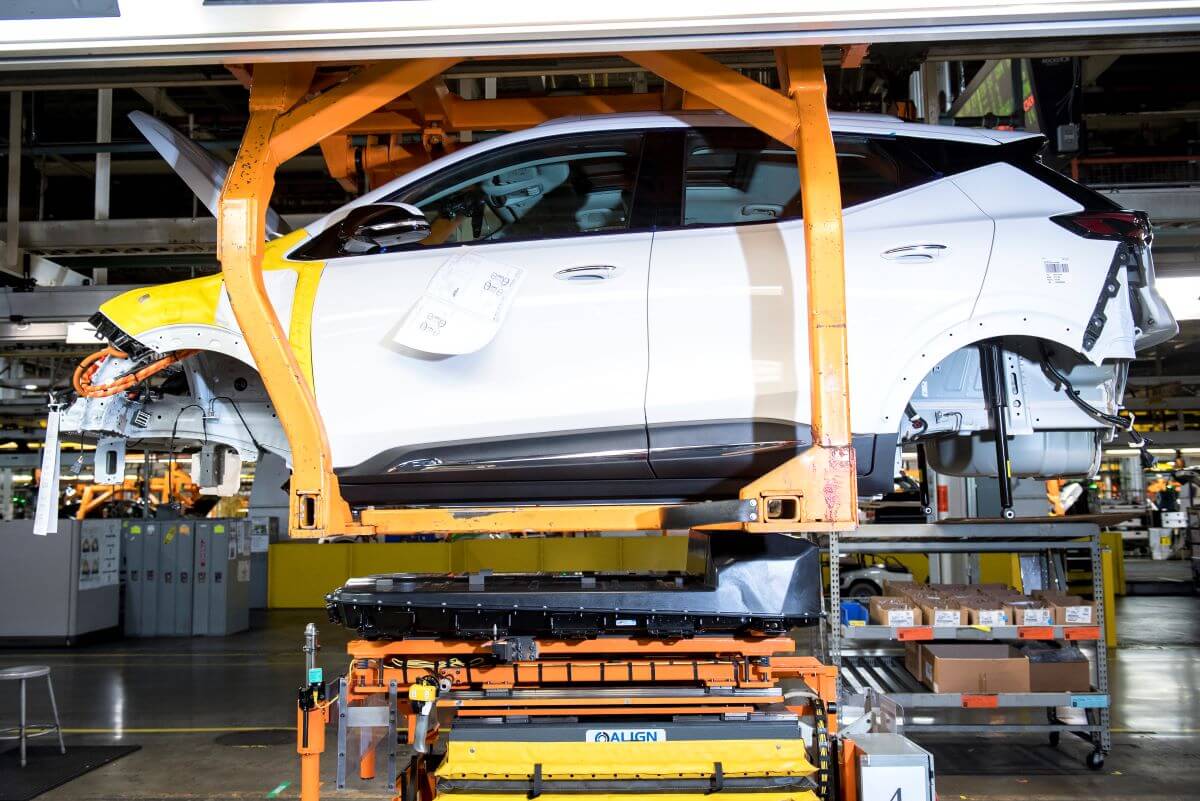Car Dealerships Step Up Opposition To Mandatory EV Sales

Table of Contents
Financial Burden and Infrastructure Concerns
The core of dealership opposition to mandatory EV sales lies in the substantial financial burden and infrastructural challenges associated with the rapid transition to electric vehicles.
High Initial Investment Costs
Dealerships face significant upfront costs to adapt to selling and servicing EVs. These include:
- Investing in specialized EV charging infrastructure: Installing fast chargers and upgrading electrical grids requires considerable capital investment, particularly for larger dealerships with numerous service bays. This includes not just the chargers themselves, but the necessary electrical work to support them.
- Training staff on EV technology and maintenance: Technicians need specialized training to diagnose and repair EV components, which differs significantly from traditional gasoline vehicle maintenance. This necessitates both time and financial resources for comprehensive training programs.
- Upgrading existing facilities to accommodate EV-specific needs: Dealerships may need to renovate their service departments to handle high-voltage systems safely and efficiently, adding another layer of expense to the transition. This could include specialized tools, safety equipment, and potentially even facility redesign.
Lack of Consumer Demand in Certain Markets
The demand for EVs is not uniform across all geographical regions. Forcing dealerships in areas with lower EV adoption rates to meet quotas can lead to significant financial losses. Factors contributing to this include:
- Limited consumer awareness of EV benefits: Many consumers remain unconvinced about the practicality or cost-effectiveness of EVs, especially in regions with limited charging infrastructure. This lack of awareness needs to be addressed through targeted marketing and education campaigns.
- Range anxiety and charging infrastructure limitations: Concerns about limited driving range and the availability of public charging stations remain significant barriers to EV adoption, particularly in rural areas. Increased investment in charging infrastructure is critical to alleviate these concerns.
- Higher purchase prices compared to gasoline vehicles: The initial cost of an EV remains higher than comparable gasoline vehicles, posing a significant hurdle for many potential buyers, especially in price-sensitive markets. Government incentives and subsidies can help bridge this gap.
Inventory Management Challenges
Balancing EV and gasoline vehicle inventory to meet mandated quotas presents significant logistical complexities for dealerships. This includes:
- Difficulty predicting EV demand fluctuations: The market for EVs is still relatively young, making accurate demand forecasting challenging. Overstocking EVs can lead to significant financial losses due to potential depreciation.
- Potential for unsold EV inventory leading to financial losses: Dealerships risk being stuck with unsold EVs, especially in markets with low consumer demand, leading to substantial financial losses. A flexible quota system could help mitigate this risk.
Governmental Regulations and Their Impact
The rigid nature of many mandatory EV sales regulations presents further challenges for car dealerships.
Lack of Flexibility in Quotas
Rigid quotas fail to account for the varying market conditions and dealership sizes.
- One-size-fits-all approach doesn't cater to diverse dealership needs: A uniform quota for all dealerships, regardless of location, size, or market conditions, is unfair and may disproportionately impact smaller dealerships.
- Potential for disproportionate impact on smaller dealerships: Smaller dealerships, with limited resources, may find it particularly difficult to meet stringent quotas, potentially leading to business closures.
Uncertain Future of EV Technology
Rapid technological advancements in the EV sector make long-term planning challenging for dealerships.
- Dealerships hesitant to invest heavily in technology that may become obsolete quickly: The rapid pace of innovation in EV battery technology, charging infrastructure, and vehicle design makes it risky for dealerships to invest heavily in infrastructure that may soon become outdated.
- Uncertainty about future government policies and support for EVs: Changes in government regulations, subsidies, and incentives can significantly impact the profitability of selling EVs. This uncertainty makes it difficult for dealerships to make long-term investment decisions.
Consumer Perception and Market Readiness
Addressing consumer concerns and facilitating a gradual transition are crucial for the successful implementation of mandatory EV sales.
Addressing Consumer Concerns
Dealerships emphasize the need for greater consumer education about EVs and their benefits.
- Addressing range anxiety and charging infrastructure concerns: Dealerships play a key role in educating consumers about EV range, charging times, and the availability of charging infrastructure.
- Promoting the overall cost of ownership (including electricity costs): Highlighting the long-term cost savings of EVs, including lower fuel and maintenance costs, is crucial to overcome price resistance.
Phased Approach Needed
Dealerships advocate for a phased approach to increase EV sales targets, allowing for smoother market adjustments.
- Gradual increase in quotas to allow for infrastructure development: A gradual increase in quotas would provide dealerships with time to adapt their infrastructure and training programs.
- Allowing time for consumer acceptance and market adjustments: A phased approach would allow time for consumer awareness and acceptance of EVs to increase, leading to a more sustainable transition.
Conclusion
The opposition to mandatory EV sales by car dealerships stems from a combination of financial concerns, infrastructural limitations, and market readiness issues. While the transition to electric vehicles is crucial for environmental sustainability, a balanced approach that considers the challenges faced by dealerships is vital for a successful and equitable transformation. A more collaborative effort between governments and dealerships, involving flexible quotas, consumer education, and substantial infrastructure investment, is crucial to ensure a smooth transition. Only through a carefully planned and implemented approach can the goals of environmental protection and economic viability be achieved. Let's work together to find solutions that address the concerns surrounding mandatory EV sales and pave the way for a greener future.

Featured Posts
-
 Major Advertisers Dismiss Musks Boycott Accusations
May 17, 2025
Major Advertisers Dismiss Musks Boycott Accusations
May 17, 2025 -
 Tom Thibodeau How Fixing An Old Flaw Saved The Knicks From Disaster
May 17, 2025
Tom Thibodeau How Fixing An Old Flaw Saved The Knicks From Disaster
May 17, 2025 -
 Post Game 4 Outrage Pistons Slam Referees Over Foul Call
May 17, 2025
Post Game 4 Outrage Pistons Slam Referees Over Foul Call
May 17, 2025 -
 Oil Market News And Analysis May 16 2024 Update
May 17, 2025
Oil Market News And Analysis May 16 2024 Update
May 17, 2025 -
 Josh Cavallo Inspiration And Advocacy After Publicly Coming Out
May 17, 2025
Josh Cavallo Inspiration And Advocacy After Publicly Coming Out
May 17, 2025
Latest Posts
-
 Experience New Orleans Jazz Fest A Comprehensive Guide
May 17, 2025
Experience New Orleans Jazz Fest A Comprehensive Guide
May 17, 2025 -
 Jazz Fest New Orleans Your Guide To The Ultimate New Orleans Music Experience
May 17, 2025
Jazz Fest New Orleans Your Guide To The Ultimate New Orleans Music Experience
May 17, 2025 -
 The Persistence Of The Morrison Legend A New York Maintenance Man Claim
May 17, 2025
The Persistence Of The Morrison Legend A New York Maintenance Man Claim
May 17, 2025 -
 Fan Claims To Spot Jim Morrison Alive And Working In New York City
May 17, 2025
Fan Claims To Spot Jim Morrison Alive And Working In New York City
May 17, 2025 -
 Jim Morrison Sighting New York Maintenance Man Claim Investigated
May 17, 2025
Jim Morrison Sighting New York Maintenance Man Claim Investigated
May 17, 2025
